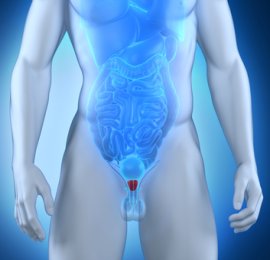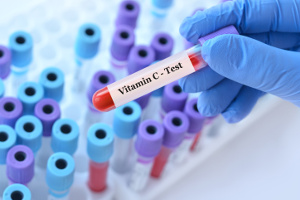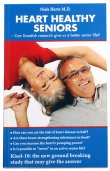Selenium status and prostate cancer risk
 Low selenium status increases a man's risk of prostate cancer and Danish men are particularly susceptible, according to a study published in British Journal of Nutrition. Earlier studies have shown that supplementation with selenium prevents prostate cancer, and selenium yeast has been shown to have the best effect.
Low selenium status increases a man's risk of prostate cancer and Danish men are particularly susceptible, according to a study published in British Journal of Nutrition. Earlier studies have shown that supplementation with selenium prevents prostate cancer, and selenium yeast has been shown to have the best effect.
The daily selenium intake in different countries varies greatly depending on the selenium content in the agricultural soil, as this influences the entire food chain. The selenium intake can be measured in the blood, and scientists have observed that people in the United States have a relatively high selenium intake, whereas the intake among Europeans is rather low.
The researchers behind a new study wanted to investigate the relation between selenium status in Danish men and their risk of developing different forms of prostate cancer. They also looked at mortality rates among men with prostate cancer. The scientists included at a total of 27,179 men, all of whom were recruited from the comprehensive "Diet, Cancer & Health" cohort study that monitored diet and lifestyle over several years.
In 2007, 784 of the participants had developed prostate cancer of varying degrees. In 2012, when the researchers followed up on the participants, 305 men had died of their disease.
The researchers observed a correlation between higher blood selenium levels and lower risk of aggressive prostate cancer.
A Dutch study from Maastricht University Medical Center with 58,000 men in the age group 55-66 years looked at the relation between blood selenium levels and the risk of developing prostate cancer. This study showed that men with the highest selenium levels were 63% less likely to get prostate cancer.
Biomarker of seleniumSelenium is essential for around 25 different selenium-dependent proteins that influence cancer prevention, immune system, thyroid function etc.. Selenoprotein P is a biomarker that plays an important role in the blood by carrying selenium to all the different cells and tissues. Scientists have observed low selenoproteins P levels in patients with prostate cancer. |
Report with dietary guidelines supports the research
In 2013, the National Food Institute of Denmark (DTU Food) issued a report called "The evidence Basis for the Danish Guidelines for Diet and Physical Activity". The report clearly states that selenium supplementation reduces the risk of prostate cancer. The same report also points out that the SELECT trial (Selenium and Vitamin E Cancer Prevention Trial) does not support this conclusion. Just for the record, this is primarily because different studies have been made with different types of selenium and organic selenium yeast appears to be the only selenium form that is effective.
Pure selenomethionine does not protect against cancer like organic selenium yeast does.
In 1996, the American researcher, Larry Clark, documented (in the NPC study) that supplementation with selenium yeast was able to lower cancer mortality by 50% at the same time as reducing the risk of three common cancer forms by 48-63%. One of these cancers forms was prostate cancer.
In spite of Clark's solid study, people often refer to the above mentioned SELECT trial that was conducted later on and was carried out on a large group of Americans who were given supplements of vitamin E and selenium. This study, surprisingly, did not show a protective effect on cancer but that stands to reason. First of all, the study participants had comparatively high selenium levels in their blood to begin with, which fits in nicely with the fact that there are many parts of the United States where the selenium content in the agricultural soil is quite high.
Secondly, the scientists behind the SELECT trial used pure selenomethionine, a form of selenium that has not been able to document convincing anti-cancer properties in studies. The good results have only been obtained with organic selenium yeast.
An abundance of scientific studies show how selenium supplementation can prevent cancer, especially among people who live in parts of the world where the agricultural soil has a very low selenium content. It is very important to choose selenium yeast, as this form of selenium provides a rich variety of different organic selenium compounds quite similar to the selenium variety found in a balanced, selenium-containing diet.
Selenium sourcesSelenium is found in e.g. fish, organ meat, shellfish, nuts, and whole-grain. The selenium content in vegetable sources depends a lot on the agricultural soil in which the crops have grown. Many Americans get twice as much selenium from their diet as Europeans do because the soil in many parts of the United States is rich in selenium. |
The National Food Institute of Denmark (DTU Food): Supplements of selenium yeast protect against prostate cancer
According to a report from The National Food Institute of Denmark, daily supplementation with 200 micrograms of selenium yeast lowers the risk of prostate cancer.
The risk of prostate cancer increases with ageAround 30% of Danish men older than 50 years of age have cancer cells in their prostate gland. Although the disease takes years to develop, prostate cancer is the most common cancer form among older men. |
Selenium helps regulate a derailed immune defense in prostate cancer
Researchers from The University of Copenhagen have conducted a study that reveals how the selenium compound methylselenol prevents cancer cells from spreading as a result of cellular stress and a derailed immune defense.
Cells can get stressed if they are exposed to damage, virus, or environmental toxins. This causes the cells to produce a type of "alarm bells" called NKG2D ligands that activate the immune system. Under normal circumstances, this is desirable as part of the protection of cells against damage, infections, and cancer. However, things may get out of hand. In the case of prostate cancer, melanoma, and certain types of leukemia, the cells produce far too generous amounts of these NKG2D ligands, causing the immune system to overreact. At the same time, the NKG2D ligands infest the bloodstream kind of like bundles of "alarm bells" that confuse and exhaust the immune system. In the long run, the NKG2D ligands contribute to the breakdown of the body, unless they are controlled in time. According to the Danish researchers, methylselenol counteracts the uncontrolled production of the problematic NKG2D ligands at the same time as preventing them from spreading in the bloodstream. This, however, requires that there are sufficient amounts of selenium and methylselenol in the body.
Selenium's six anti-cancer mechanisms
|
References:
Malene Outzen et al. Selenium status and risk of prostate cancer in a Danish population. British Journal of Nutrition 2016
DTU Fødevareinstituttet. Evidensgrundlaget for danske råd om kost og fysisk aktivitet. 2013
Clark LC et al: Effects of Selenium Supplementation for Cancer Prevention in Patients with Carcinoma of the Skin. Journal of the American Medical Association: 1996
Hagemann-Jensen Michael et al. The Selenium Metabolite Methylselenol Regulates the Expression of Ligands That Trigger Immune Activation through the Lymphocyte Receptor NKG2D. The Journal of Biological Chemistry. 2014.
Klein EA et al. Vitamin E and the risk of prostate cancer: The Selenium and Vitamin E Cancer Prevention Trial (SELECT). Jama 2011.
http://digitalarchive.maastrichtuniversity.nl/fedora/get/guid:21086f79-7264-43bc-9976-0b10afb27ba6/ASSET1
https://www.cancer.dk/forskning/center-for-kraeftforskning/kost-gener-miljoe/kost-kraeft-helbred/
Search for more information...
- Created on .








 Most people are unaware of vitamin C’s key role in mental health and mood. According to a large population study that is published in Frontiers in Nutrition, having higher levels of vitamin C in the blood is linked to a lower risk of depression. The official dietary recommendations for vitamin C only focus on preventing the potentially lethal deficiency disease called scurvy, and things like stress, ageing, stimulant use, overweight, infections, and chronic illnesses can increase your need for the nutrient.
Most people are unaware of vitamin C’s key role in mental health and mood. According to a large population study that is published in Frontiers in Nutrition, having higher levels of vitamin C in the blood is linked to a lower risk of depression. The official dietary recommendations for vitamin C only focus on preventing the potentially lethal deficiency disease called scurvy, and things like stress, ageing, stimulant use, overweight, infections, and chronic illnesses can increase your need for the nutrient.


 "After about one week of taking the Q10 supplement I could feel a huge difference," says 23-year old Alan Piccini, who has been suffering from extreme fatigue and muscle aches ever since he was a child.
"After about one week of taking the Q10 supplement I could feel a huge difference," says 23-year old Alan Piccini, who has been suffering from extreme fatigue and muscle aches ever since he was a child. “Taking capsules with co-enzyme Q10 has freed me of the severe side effects of my cholesterol lowering medicine,” Mrs Franken explains.
“Taking capsules with co-enzyme Q10 has freed me of the severe side effects of my cholesterol lowering medicine,” Mrs Franken explains.